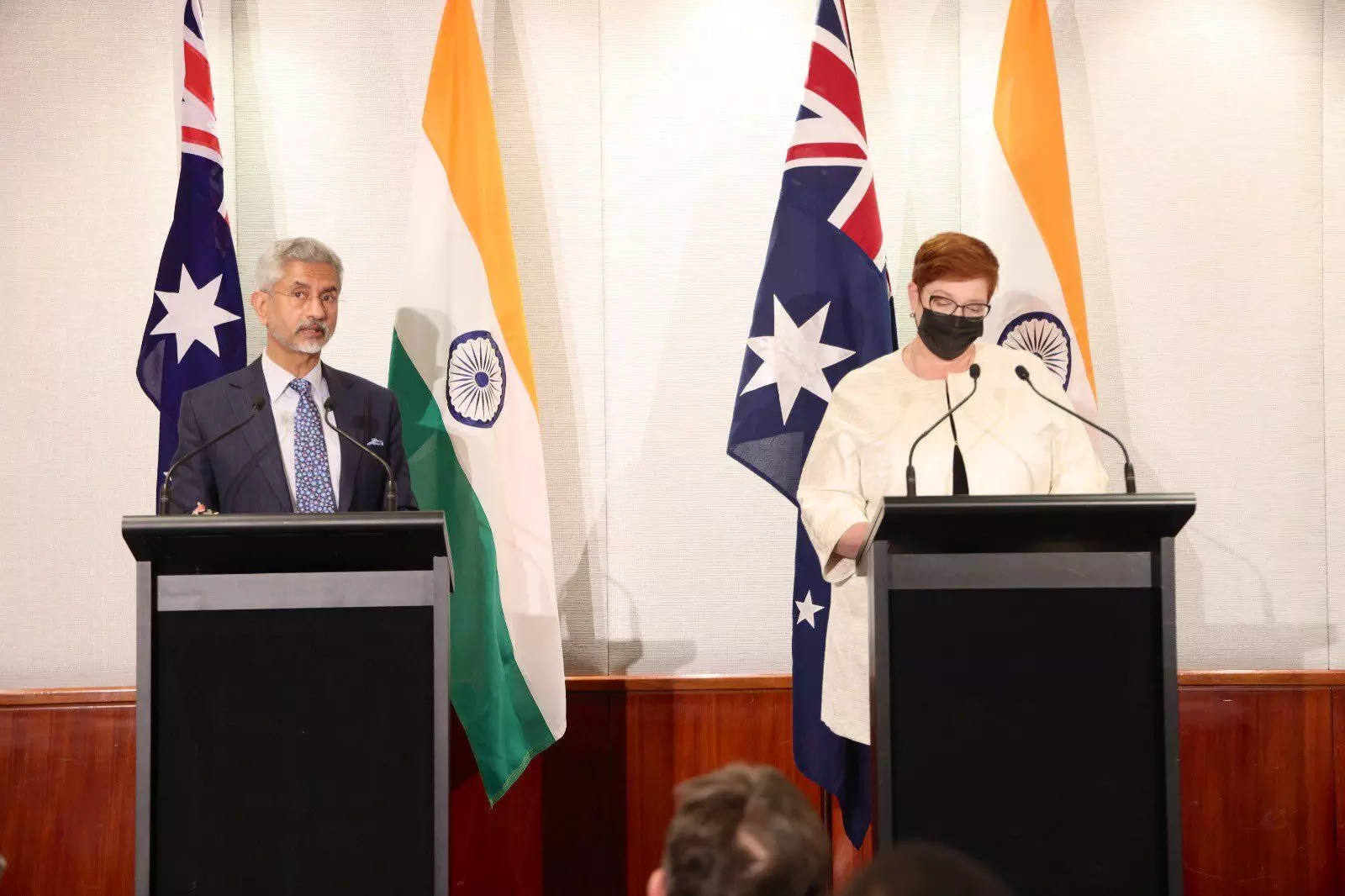
India, Australia stand firm against China after Quad summit
text_fieldsMelbourne: External Affairs Minister S. Jaishankar candidly admitted that the issue of Chinese aggression had come up during the Quad summit in Australia earlier this week, asserting that Chinese opposition to the meeting did not make the issues raised any less "credible".
Jaishankar, along with his Australian counterpart Marise Payne, said that Quadrilateral Security Dialogue (Quad) was an important part of developing relationships amongst countries in the Indo-Pacific region and that it was aimed at prosperity and resilience through initiatives focused on Covid-19 vaccines, infrastructure development and maritime security. The meeting was not to oppose any one country Jaishankar said during the joint press conference in Melbourne following a bilateral meeting with Payne.
Jaishankar reiterated India's contention that the standoff with China in the Ladakh sector of the Line of Actual Control (LAC) was the outcome of the Chinese side disregarding written agreements on not massing troops on the border. He was responding to a question on whether the situation at the LAC figured in his meeting with Payne.
The Chinese foreign ministry criticised the Quad on Friday as a "tool for containing and besieging China to maintain US hegemony" and to "stoke confrontation and undermine international solidarity and cooperation". A Chinese spokesperson said the attempt to forge an alliance to contain China would lead nowhere.
He said that it was only natural that the issue of Chinese aggression should come up as countries would share concerns when a large country "disregarded" multiple written agreements not to mass troops on the border, as China had done with India.
Payne was more pointed in her response to China's criticism of the Quad, saying the work being done by multiple working groups under the Quad framework's positive agenda shows that the grouping is "not against anything".
"We are about building...confidence and resilience, about promoting a region in which all countries are able to be, and feel, sovereign and secure without the threat of coercion or intimidation," she said.
Jaishankar hailed Australia's commitment to the Maitri scheme to empower Indian scholars and boost cultural and educational ties between India and Australia.
"The Maitri Fellowships Program will provide USD 3.5 million over four years to build links between future leaders, will support mid-career Australian and Indian professionals to collaborate on strategic research initiatives," Payne said.
The Quad summit in Melbourne featured Australian Prime Minister Scott Morrison meets with US secretary of state Antony Blinken, Japanese foreign minister Yoshimasa Hayashi, Australian foreign minister Marise Payne and Indian foreign minister Subrahmanyam Jaishankar.
























